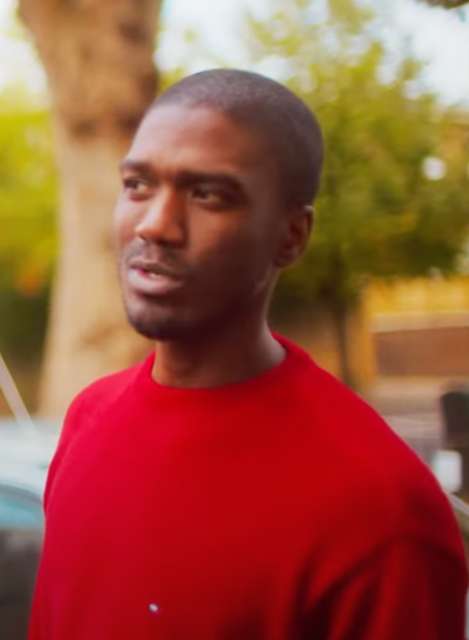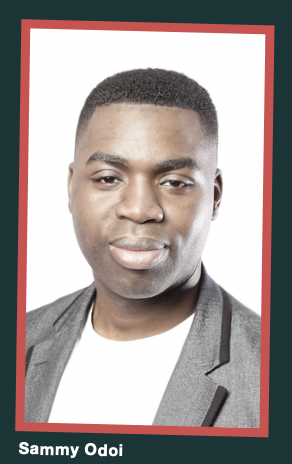
Grime kids is an enjoyable BBC Three drama written by Theresa Ikoko and inspired by DJ Targets non-fiction book by the same name. Set in the early 00s, it’s a heart-warming tale of five teenagers exploring friendships, loss, illness, families, fathers and sons, heartaches and triumphs, all against a backdrop of a new energetic sound that would go on to have mainstream global appeal.
I watched it with a joyous sense of nostalgia, engulfed by a flood of memories inspired by the soundtrack, colours and fashion so accurately portrayed.
But it was the subplot of one of the lead characters, Bishop, and his youth worker Chris, that really resonated with me. Bishop, an aspiring young producer makes some poor decisions which gets him in a pickle with an unsavoury character. Chris, with the vision and wisdom that lived experience brings, warns Bishop “choose your company wisely”, but when that advice goes unheeded and the situation gets peak, Chris intervenes at great personal expense to help Bishop out.
Chris is symbolic of so many youth workers I knew when I started my career as a youth worker 22 years ago. Most of my colleagues had that same drive and commitment to do all within their power to help young people grow and develop, make the right choices and in some cases avoid making the same mistakes they made. I still recall with fondness the relationships and experiences I had running sessions in my voluntary church youth group, which led to me seeking work as a residential support worker, outreach and detached youth worker and set me on my way to pursuing a career in youth justice and social work. Seeing the impact that a trusted adult could have on a young person’s development was one of my motivations for starting Wipers Youth CIC - a social enterprise which values the importance of frontline youth ‘engagement’ workers with lived experience, to help young people have a clearer vision for a safer journey through their adolescent years.
Sadly however, many of my colleagues from back then are no longer in the profession. Over the past twenty years, they have been the causalities of extended austerity, reduced funding and youth club closures, that has seen many qualified and capable individuals leave the profession for other more economically stable careers. The devastating impact of the pandemic soon justified their decision as the mass closure of youth facilities saw youth workers - a large segment of whom had part-time short-term contracts – thrust into financial hardship and some have not returned to the sector at all.
The merit of youth work is well known but still undervalued. Youth work plays a crucial role in empowering young people. It supports young people's development, providing guidance, mentorship, and a safe space for growth and learning. Many youth workers have grown up in the same localities in which they work, and most will have faced the same challenges and obstacles as young people today albeit in different forms. This lived experience can make someone a better frontline youth worker because it fosters empathy, understanding, and relatability with the challenges young people face. It enables the youth worker to connect on a deeper level, offering more meaningful support and guidance based on personal understanding and shared experiences.
Research indicates that the informal support provided by trusted adults within the community are key to improving safety, and a vital protective factor in any public health strategy aimed at tackling knife crime and serious youth violence. Those trusted adults & VCSE youth work practitioners need to be well-supported and adequately trained to understand the impact of trauma on young people. In my experience, youth workers are best placed to spot the signs of pending violence and intervene at early stages through simple words of advice that can positively impact young pope’s consequential thinking process.
I remember an experience almost 20 years ago when a young man I was mentoring was seriously stabbed and lay in a life threatening condition in hospital for many days. I remember the panic when I first got the call from his sister informing me what had happened. I recall the feelings of dread I had, fearing the worst and hoping for the best as he fought his life in the ICU. Thankfully, he pulled through and was released from the hospital some days later. When I drove him home from the hospital, it wasn’t long before a large group of his friends showed up at his home to check on him. They sat on the stairwell in his block of flats, discussing what they were going to do about the fact that one of their own had been injured and almost killed. Some wanted to retaliate straight away, some wanted to wait, some wanted to let it go altogether. They discussed the pros and cons, saying how it could easily have been one of them, and how doing nothing could be as risky as taking action. Emotions were high and feelings tense. I said nothing for a long time. I just listened.
I knew some of the boys from the youth club and others I’d only seen a couple of time before. I saw the fear, pain and hurt in their faces and understood that feeling of powerlessness and a loss of control that they were all feeling, even though it was only one of them that had been stabbed. Towards the end of the conversation, myself and another youth worker that was present reiterated some of the potential negative consequences of retaliating that some of their peers had already mentioned, as well as adding in a few more they hadn’t considered. We encouraged them to let it go. They all went their separate ways and thankfully there were no further incidents that followed that occasion.

I look back now and often wonder what might have happened if myself and my colleague weren’t there that day? How much impact did we actually have in reality?
Would there have been the same result regardless of our presence? Or did we help prevent another young person get hurt and potentially lose their life? Without a quantum-leap crystal ball to show every possible outcome across the multiverse, it’s impossible to know. Therein lies the conundrum of youth work and how you quantify its effectiveness. Far from being mere babysitters that entertain kids with table tennis and playing pool, there is myriad of invisible, soft
skills and personal and social development that is virtually impossible to measure.
We need to elevate the profession of ‘Youth Work’ so that those with the passion and desire to create positive impacts within communities see it is a viable career option. Recognition of youth work as a respected profession contributes to its legitimacy and effectiveness. Long term investment is needed to offer pathways to accreditation and qualifications such as undergraduate and postgraduate degrees in youth work or youth and community studies, as well apprenticeships and training programs that provide practical experience in youth work settings.
I’ve been pleased to see that the Mayor of London has invested millions of pounds over the last 18 months to provide funding and sustainability for organisations that provide mentoring for vulnerable young people, and train trusted adults that help those most at risk of exploitation or exposure to violence and crime. This is really positive to see, after such a long period of deprivation for the sector. Hopefully it will see more people returning to the sector with better offers of longer-term and permanent contracts with respectable salaries and career benefits.
However, it will take many years to rebuild the solid infrastructure of youth clubs and organisations that we once had in London. It will require unrelenting commitment amidst likely hurdles of changing governments and government policies, economic challenges and shifting societal attitudes, all of which remains unclear at this time what the future will hold. One thing that is clear however, is that the trusted youth worker and local youth hubs need to be front and centre in any conversations around reducing violence and increasing youth safety.

Sammy Odoi
Managing Director, Wipers Youth CIC
www.wipers.org.uk
